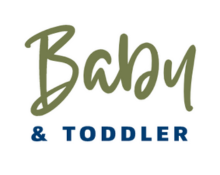
Breastfeeding a baby with colic can be challenging, but there are strategies you can try to help alleviate discomfort and provide comfort during feedings. Here are some tips:
Experiment with breastfeeding positions: Different breastfeeding positions can help relieve gas and discomfort in a colicky baby. Try positions that allow for gentle pressure on their tummy, such as the football hold or laid-back position. This can help with digestion and reduce discomfort.
Burp frequently: Burping your baby during and after feedings can help release trapped air and reduce colic symptoms. Pause during the feeding to burp your baby and continue breastfeeding afterward.
Slow down the feeding: Some babies with colic may have a sensitive digestive system. Slow down the feeding pace by allowing your baby to take breaks during the feeding. This can help prevent them from swallowing excessive air and aid in digestion.
Consider your diet: Some breastfeeding mothers find that certain foods in their diet can contribute to colic symptoms in their babies. Common culprits include caffeine, dairy products, spicy foods, and gas-inducing foods like onions and cabbage. Experiment with eliminating or reducing these foods from your diet to see if it makes a difference in your baby’s colic symptoms.
Use soothing techniques: During and after breastfeeding, try using soothing techniques to help calm your baby. Gentle rocking, swaying, or carrying your baby in a baby carrier can provide comfort and distraction from colic symptoms.
Seek support: Reach out to a lactation consultant, pediatrician, or healthcare provider for additional guidance and support. They can evaluate your baby’s symptoms, offer personalized advice, and provide recommendations for managing colic while breastfeeding.
Take care of yourself: Dealing with a colicky baby can be stressful and exhausting. Make sure to prioritize self-care and seek support from family members or friends to give yourself breaks when needed. Taking care of your own well-being will help you better cope with the challenges of breastfeeding a baby with colic.
Remember, colic is a temporary condition that typically improves over time. While it can be frustrating, it’s important to stay patient and offer your baby comfort and support during this phase. Each baby is different, so it may take time to find what works best for your little one.
